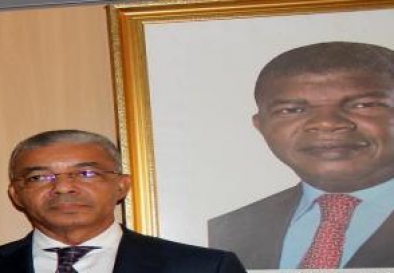New Angolan Petroleum Chief Has Last Laugh?
Angola’s President Joao Lourenco has appointed Carlos Saturnino as the country’s petroleum secretary, replacing the former oil minister Jose Maria Botelho de Vasconcelos.
Lourenco actually merged the petroleum and mining ministries into a single one, headed by Diamantino Pedro Azevedo, a former CEO of state iron ore mining company Ferrangol. Two secretaries of state -- Saturnino for petroleum, and Janio Victor for mining -- appointed October 13 report to Azevedo.
But there's no escaping the importance of Saturnino's appointment. He was head of state oil and gas company Sonangol’s upstream division until he was fired in late 2016. Now effectively he is overseeing the woman who fired him, Sonangol’s chair Isabel dos Santos. She is among a handful of officials who cannot be removed from office, because of a law imposed by her father Angola’s former president Jose Eduardo dos Santos.
Analysts expect a tense collaboration between the new minister and Sonangol chairwoman that may impair how the industry functions. One political analyst Ricardo Soares de Oliveira has said that in Angola there are only two powers: “The state-owned oil and gas company and the Presidency.”
Meanwhile the government put in place October 23 a committee led by the new petroleum secretary to conduct on a month-long audit of the sector to identify the key challenges it faces. Reports say this will include representatives of Sonangol, the finance ministry and presidency, and one each of the leading oil producers in Angola: BP, Chevron, Eni, ExxonMobil, Statoil and Total.
Prior to heading Sonangol's upstream, Saturnino headed its team for negotiations with foreign partners around 2010, during a period when many oil majors were investing in Angola. This week consultancy WoodMac estimated that $67bn of capital investment was cut or deferred in Angola in 2015-20, chiefly from oil developments, following the oil price slump in 2014 -- or roughly half the total capex cut or deferred in the whole of sub-Saharan Africa.

Carlos Saturnino, the new petroleum minister, next to a photo of Angola's President Joao Lourenco (Photo credit: Angolan petroleum ministry)
Olivier de Souza



